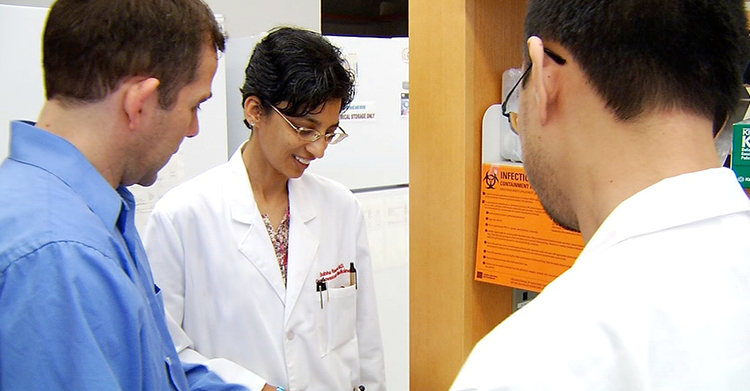
Below are a list of FAQs regarding the early treatment of cardiomyopathy in Duchenne using eplerenone. We consulted Dr. Subha Raman of The Ohio State University Wexner Medical Center and Dr. Linda Cripe of Nationwide Children’s Hospital for answers to some of the questions we have received from the community over the last few days.
What is the purpose of this study?
The purpose of this study was to determine if a group of medicines called aldosterone antagonists, medicines used for high blood pressure and heart failure, could slow heart muscle damage and preserve heart function in patients with Duchenne. The research team previously showed that in a Duchenne mouse model, aldosterone antagonism in combination with angiotensin converting enzyme (ACE) inhibition limited muscle damage and maintained muscle function. Because these drugs had an established safety record in children and adults, this study could be initiated soon after completion of the mouse study.
Who did this study?
A team of heart specialists, scientists, and research staff dedicated to improving outcomes for people with Duchenne worked together to complete the study. The team included people from Ohio State University, Nationwide Children’s Hospital, the Christ Hospital Heart and Vascular Center, University of California Los Angeles, University of Maryland, and Cincinnati Children’s Hospital.
Who sponsored this study?
Parent Project Muscular Dystrophy sponsored this study with additional support provided by Ballou Skies, the National Center for Advancing Translational Sciences, and the National Institutes of Health.
How was the study done?
42 participants, ages 7 years and older, with evidence of myocardial fibrosis and normal heart function by Cardiac magnetic resonance imaging (MRI) took either eplerenone or placebo in combination with an ACE inhibitor or ARB (angiotensin receptor blocker) daily for 12 months. Heart muscle damage and function were measured at baseline, 6 months and 12 months using noninvasive cardiac MRI. Blood samples were also collected at specific time points during the study.
What were the results of this study?
Patients who took eplerenone in combination with either ACE inhibitors or ARB demonstrated less change in fibrosis at 6 months and more stable heart function at 12 months.
My child’s cardiologist said my son is too young to start cardiac medication. At what age should cardiac medication be started?
We do not have a good answer supported by research data as to what is the “right” age to start cardiac medications. There is a number of differing opinions among knowledgeable cardiologists. Clearly, medications should be started once there is evidence that there is damage in the heart. But we are unfortunately limited by our ability to see that damage. Fibrosis cannot be seen on an echocardiogram. It should be noted that this was not a study done to determine when medications should be started.
Should my son start on ACE/ARB and eplerenone together or separately? If separately, how long should I wait to begin the additional medication?
We generally start one (e.g. ACEI or ARB) and then make sure that it is tolerated before adding another medication.
My cardiologist won’t order a cardiac MRI because he doesn’t feel that fibrosis is an indication for initiating medication. Can this study do anything to change this approach?
This study clearly shows that when medications are started at the time that a cardiac MRI shows heart muscle damage (fibrosis) but before heart function is abnormal, they help prevent worsening of heart function. If your cardiologist has questions as to the importance of preventing worsening heart function through early detection and treatment, or if you feel like you need another perspective, feel free to contact PPMD who can put you and/or your doctor in touch with an individual who cares for large numbers of Duchenne patients.



 by: Parent Project Muscular Dystrophy
by: Parent Project Muscular Dystrophy

